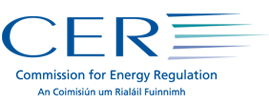
By Ann Marie Foley - 30 June, 2016

The Society of St Vincent de Paul (SVP) has called on the Government to review the Public Service Obligation (PSO) levy which subsidises the energy industry and may cost cash strapped families up to €90 in the year ahead.
The SVP pays out almost one quarter of its entire annual €40m budget on energy bills which people cannot pay.
Yet the Government levy to support the energy industry could take a proposed 36% increase.
There is a proposal that the Public Service Obligation (PSO) levy will see a fourfold increase on 2011 level and will wipe out almost 50% of recent savings on electricity, stated the St Vincent de Paul.
In its response to the Regulator’s latest consultation document, the SVP says that the proposed PSO increase will add about €90 (including VAT) a year to domestic bills.
This is an increase of about €23 (including VAT). Recent price reductions in electricity charges have saved customers approximately €50 a year.
“It remains a largely forgotten tax which will raise €0.44bn in 2016/2017 to subsidise the energy industry,” said John-Mark McCafferty, Head of SVP Social Justice and Policy.
“It is imposed on all domestic customers at a flat rate, creating an increased burden on low income customers and those with a history of arrears and indeed multiple debts.”
He added that given the levy increase envisaged, the PSO can be considered to be a regressive tax.
“With VAT added domestic customers are effectively paying a tax on a tax. In the interest of social justice and fairness, we urge a review of the PSO application for low income and struggling energy customers,” he said.

The PSO levy was designed by the Government to support its national policy objectives related to renewable energy, indigenous fuels (peat) and security of energy supply.
Some of the required funding (subsidies) ended in 2015 but new (renewable) schemes continue to be added subject to Government and EU approval.
“At this stage the security of supply and indigenous fuels recede in importance and some 75% of the proposed levy is funding renewables.”
“In 2011, the annual levy per customer (less VAT) was €19.33. It is now €60.09 and the proposal is to bring it up to just €80 from October next, a four-fold increase in five years,” he said.
“While we are in favour of supporting renewable and sustainable energy, in the light of such an increase the operation of the PSO levy must now be reviewed.”
Submissions to the CER Consultation Paper closed yesterday (Monday 27 June) with a final decision, on the actual amount to be levied, to be announced on 1st August for implementation from 1st October.

In its submission, the SVP said that this is a little known tax will put pressure on cash strapped families at a time of continued financial difficulties to pay energy providers €0.44billion.
Last year, the SVP stated that a reduction of the levy by €4 was derisory as the charge dropped from €64.37 to €60.09 following increases of over 100% between 2012 and 2014.
Commission for Energy Regulation (CER) reported that in March 2016 the total number of disconnections in electricity was 806 compared to 592 in March 2015, and there were 363 gas disconnections compared to 300 in 2015.
In January 2016, there were 684 disconnections in electricity and 213 in gas. In February 2016 the figures were 644 (electricity) and 337 (gas).
For all three months the totals were 2,134 electricity disconnections and 913 gas.
CER reported that during this period in 2016 energy suppliers were not permitted to disconnect registered vulnerable customers (for age or health reasons and not in winter months).
The regulator also stated that anecdotal evidence from suppliers suggested that a significant number of disconnected properties were vacant.